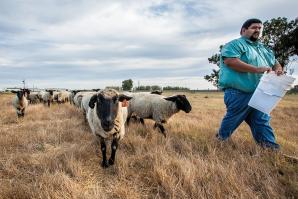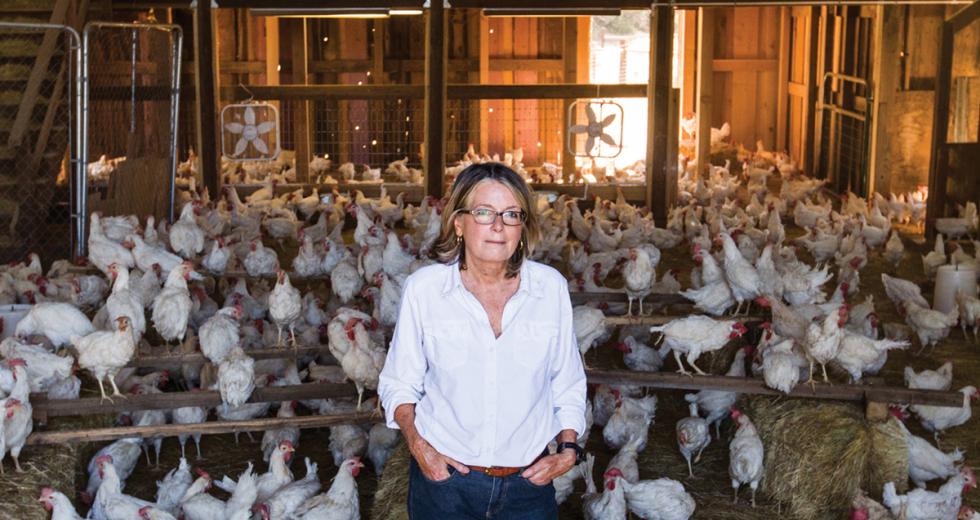Kim Sturla’s biggest challenge isn’t caring for thousands of animals at a time. It’s trying to get people to think about a pig’s life in the same way they would think about a dog’s.
As the executive director of Animal Place, she’s made it her mission to rescue animals — pigs, cows, chickens, rabbits, turkeys, goats and sheep — normally raised for food production.
“Just because you have more of a connection with a dog doesn’t mean a pig’s life is less valuable,” says Sturla.
Most of the animals Animal Place takes in come from California farms and end up spending time at the nonprofit’s 60-acre sanctuary in Vacaville or a 600-acre sanctuary in Grass Valley before finding a new home.
In 2013, the nonprofit rescued more than 3,000 hens from being gassed on a California egg farm. The industry standard is to kill hens after about two years because they no longer produce enough eggs to be commercially viable.
The nonprofit kept 2,000 of the chickens, many of which are still available for adoption. The rest were flown to a sanctuary on the East Coast. Commercial airlines wouldn’t take the hens, so a private donor footed the bill for a private jet.
“We’re saving 3,000 chickens, yes. But we’re also trying to educate the public about how chickens are raised,” Sturla says. “If most people went with me into the chicken coup, they wouldn’t be eating them anymore.”
Chickens are raised for egg production, so males are killed within a day or two. The females are de-beaked with a hot-iron blade and without anaesthesia. It used to be that suffocating chickens with plastic bags was common practice, now many places throw them into big macerating machines.
“At least it’s a quicker death than the suffocation,” Sturla says.
In the U.S., there are no federal laws protecting animals while they’re being raised on a farm, says Bret Hopman, senior media and communications manager for the ASPCA. At the state level, the majority of states expressly exempt farm animals or certain farming practices from their anti-cruelty provisions, making it nearly impossible to provide protections, he says.
Sturla says conditions that would be cruel for a dog or a cat are standard for farm animals. For example, bulls are castrated without anesthesia, but a dog or cat’s owner would make sure the pet is comfortable.
“It’s interesting how we perceive what’s acceptable for one species but not for another,” Sturla says.
Animal Place receives no government funding. Sturla estimates her budget topped $1 million last year, with 99 percent coming from donations from around the country.
The nonprofit has 13 employees, a half-dozen residential interns and a few dozen “hard-core volunteers,” Sturla says
“Our focus is farmed animals. The message is something so basic: It’s not just about protecting pigs and cows but having respect for all life. When we’re out here, we’ll catch a rattlesnake and find a home for it. We don’t poison rodents; we have an organic garden. It’s about living life with the least harm.”
Recommended For You

Along for the Ride
Second chances for needy horses
Alyssah Schafer was born with a congenital heart defect and has never been able to run or compete in sports. Over time, her friends drifted away, and the girl became depressed. But then she met a mustang named Montana at All About Equine, a horse rescue and rehabilitation organization in El Dorado Hills.

Rearing an Industry
How Solano County is cultivating its ag economy
Solano County is taking steps to develop a new agricultural hub that farmers and economists hope will someday house facilities to process raw ag products into purchasable commodities.



